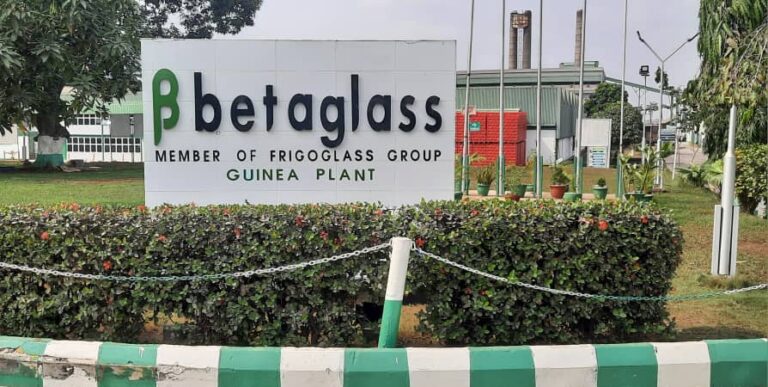A new study conducted by Deloitte has underscored the far-reaching influence of Beta Glass Plc, revealing the company’s substantial contributions to Nigeria’s industrial growth, employment, and sustainable development over the past decade.
According to the Socio-Economic Impact Assessment Report covering the period 2015–2024, Beta Glass — a leading producer of glass packaging in West and Central Africa — has played a pivotal role in advancing Nigeria’s economy through its investments, innovation, and community impact initiatives.
Major Economic Footprint
In 2024 alone, Beta Glass recorded a total economic output of ₦324.7 billion, accounting for nearly 1% of national manufacturing output and 14% of the non-metallic products sub-sector. Over the last ten years, the company’s operations have contributed more than ₦1.1 trillion to Nigeria’s GDP, solidifying its position as one of the nation’s key industrial players.
Job Creation and Local Empowerment
The report highlights that Beta Glass sustained over 4,000 full-time jobs in 2024 through direct, indirect, and induced employment opportunities. Its two main plants — located in Delta and Ogun States — collectively employ more than 1,490 workers, with over 98% of staff at the Ogun plant hired locally, reflecting the company’s deep commitment to community inclusion and skills development.
Tax Contributions and Fiscal Impact
Between 2015 and 2024, Beta Glass contributed approximately ₦64.7 billion in taxes to Nigeria’s public revenue. This includes ₦20 billion in corporate income tax, ₦2.9 billion in PAYE, and ₦41.8 billion in VAT — funds that help support critical government services and infrastructure.
Regional and Community Influence
Deloitte’s findings also show that Beta Glass’ Ogun State facility generated an estimated ₦223.4 billion in total impact in 2024, representing about 3.1% of the state’s GDP, while its Delta plant contributed ₦101.35 billion, equivalent to roughly 2% of Delta’s GDP.
Beyond economic metrics, Beta Glass has invested over ₦85 million in community projects between 2019 and 2024, targeting improvements in education, healthcare, and infrastructure. The company has also integrated sustainability initiatives, including the installation of a solar power plant at its Agbara facility and the use of up to 50% recycled glass in its production process to reduce emissions and energy use.
Sustainability and Global Alignment
Beta Glass’ corporate strategy aligns closely with the United Nations Sustainable Development Goals (SDGs), emphasizing responsible production, decent work, and innovation-driven growth. Its continued efforts to balance profitability with environmental and social responsibility have positioned the company as a model of sustainable manufacturing in Africa.
Leadership Reflections
Speaking on the report, Alexander Gendis, CEO of Beta Glass, described the findings as a validation of the company’s unwavering commitment to national progress.
“This study reflects how our business continues to empower people, create value for stakeholders, and contribute meaningfully to Nigeria’s economy,” he said. “We remain focused on sustainable growth that benefits both our communities and the environment.”
Chairman of the Board, Vitus Ezinwa, commended the company’s resilience amid challenging economic conditions.
“Beta Glass has consistently delivered value to shareholders, employees, and the wider economy. Our achievements are a result of strong partnerships and the dedication of our workforce,” he noted.
Representing Deloitte, Michael Adiele, Strategy and Business Design Lead, said the firm worked closely with Beta Glass to document the company’s measurable and qualitative impact on Nigeria’s economy.
About Beta Glass Plc
Headquartered in Lagos, Nigeria, Beta Glass Plc manufactures premium glass packaging for the beverage, food, and pharmaceutical industries. Its operations extend to nine other African markets, including Ghana, Côte d’Ivoire, Sierra Leone, Liberia, Cameroon, South Africa, and Burkina Faso, exporting across West and Central Africa with a commitment to innovation, quality, and sustainability.

